Dal’s OpenThink initiative officially returns for its fourth year starting this week, with 13 ambitious PhD students from across the university forming the program’s 2023 cohort. Throughout the year, the new OpenThinkers will share their expertise with the public through monthly articles on the OpenThink blog — the first of which are now available to read.
The first set of OpenThink articles cover everything from the connection between Indigenous and medieval studies to optimal aquaculture fish food and collaborative robots. The blog will keep readers up to date on the latest knowledge, opinions, and insights from Dalhousie’s PhD researchers — who generate some of the most innovative ideas at the university.
“As OpenThink’s creator and academic director for the past four years, I have seen the phenomenal growth of our students in their ability to share their expertise with the public,” says Lynne Robinson. “Last year, 18 articles written by OpenThinkers were picked up by a national media outlet. It’s inspiring to see just how far reaching their work is.”
The OpenThink program gives students the opportunity to influence public discourse and policy by providing a platform for thought leadership as well as communications training. OpenThinkers learn from experts in journalism, public relations, and data visualization from organizations such as the Conversation Canada, NATIONAL Public Relations, King’s College, and Dal’s own Creative Services.
The 2023 cohort represents seven Faculties and 11 departments at Dal. With OpenThinkers studying various disciplines, ranging from engineering to psychiatry, the program provides a unique view into the university’s leading-edge thinking. The 13 students will help readers stay informed on some of today’s most challenging problems, such as emerging threats to democracy and support for mental health.
“Each year, our OpenThinkers step up to the challenge of communicating complex, multifaceted concepts to make them accessible for the greater public,” says Adam Donaldson, acting dean of the Faculty of Graduate Studies. “By translating their knowledge and sharing it with the world, they can inspire innovation and growth far beyond Dalhousie.”
Meet the 2023 OpenThinkers and learn about their research
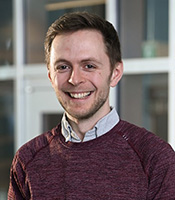 Alastair Price, Chemistry PhD
Alastair Price, Chemistry PhD
Alastair Price is interested in the "chemical space problem,” with the idea that there exist more possible combinations of drug molecules than atoms in the universe. He uses computers to probe this massive space for usable pharmaceuticals.
“Blue sky research is where my ultimate passion lies. I believe that humanity achieves its most impressive feats when we are at our most curious and collaborative.”
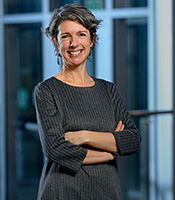 Alison Brown, Interdisciplinary PhD
Alison Brown, Interdisciplinary PhD
Alison Brown studies how bringing people together to read aloud and discuss compelling literature can strengthen well-being and build social inclusion in our diverse communities.
“For many, reading is deeply personal. We read to make sense of our lives, escape into the unknown, find companionship in the familiar, discover what we and others are capable of. All of this can be amplified when we read aloud together.”
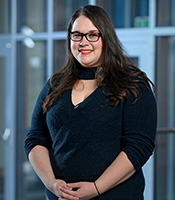 Brenna Duperron, English PhD
Brenna Duperron, English PhD
Brenna Duperron explores how Indigenous knowledge can be applied to non-Indigenous literature, giving more insight into works across time and geography.
“My work decolonizes our approach to medieval texts by reading them through Indigenous knowledge systems.”
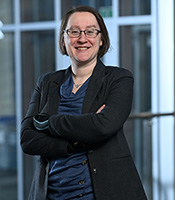 Danielle Maitland, Agricultural Sciences PhD
Danielle Maitland, Agricultural Sciences PhD
Danielle is developing food that provides fish with everything they need, but also creates excellent fertilizer for plant growth – making aquaponics easier, more productive and economical.
“Aquaponics has excellent potential to feed people in hard-to-reach places (far northern communities, urban food deserts, space travel) using a sustainable, highly productive, nearly closed-loop system.”
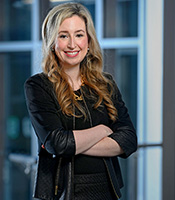 Emily Drake, Health PhD
Emily Drake, Health PhD
Emily Drake is studying palliative care experiences of young people with cancer.
“Understanding what patients experience will allow for healthcare providers to act with more tact and compassion when caring for this population.”
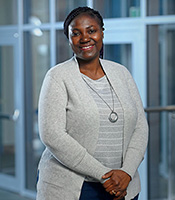 Gloria Obuobi-Donkor, Psychiatry Research PhD
Gloria Obuobi-Donkor, Psychiatry Research PhD
Gloria Obuobi-Donkor explores the effectiveness of a text messaging program (Text4Support) for improving mental health outcomes and overall mental well-being.
“Psychiatric patients may experience increased vulnerability during specific periods of their journey, especially when they first enrol in a mental health program or after being discharged from an inpatient unit.”
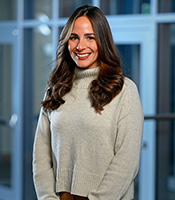 Julia Kontak, Health PhD
Julia Kontak, Health PhD
Julia Kontak studies the importance, process and benefit of meaningfully engaging children and youth voices in school health activities.
“My work aims to build evidence and awareness of the importance of shaping school environments into key settings that promote rather than hinder the health and well-being of students.”
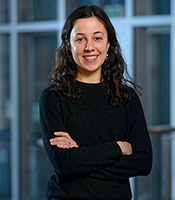 Keahna Margeson, Interdisciplinary PhD
Keahna Margeson, Interdisciplinary PhD
Keahna studies how places interconnect and constantly change, along with the people who are involved with them, with the goal of better planning for nature-based adaptations.
“It is time for the conversation to shift away from what separates people from nature and embrace the more realistic, messy complexity of peoples’ interconnectedness with nature.”
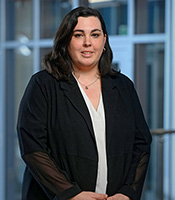 Laura Fisher, Sociology PhD
Laura Fisher, Sociology PhD
Laura Fisher is concerned with low income, rural mothers and how to provide them with the resources they need for their families to thrive.
“I look at how we can feed moms and babies and socially support the next generation of Canadians.”
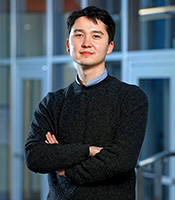 Lucas Wan, Mechanical Engineering PhD
Lucas Wan, Mechanical Engineering PhD
Lucas Wan researches robotic manipulators that work collaboratively with humans, enabling companies to automate different tasks day to day, achieving high productivity with low expenses.
“By working together with human workers, collaborative robots can help to improve the overall efficiency of worksites, which can help to create new job opportunities.”
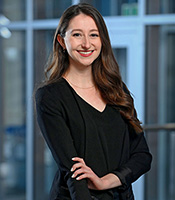 Nicole MacKenzie, Clinical Psychology PhD
Nicole MacKenzie, Clinical Psychology PhD
Nicole MacKenzie works to understand how health partners can most effectively be helped to work together to apply evidence for children’s pain management.
“When the best available evidence on children’s pain management is put into practice more efficiently and effectively, children’s pain is better managed, reducing or eliminating the potential for long-term physical, psychological, and social consequences.”
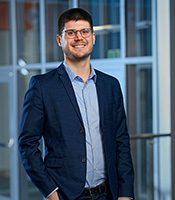 Tobias Gerhard Schminke, Political Science PhD
Tobias Gerhard Schminke, Political Science PhD
Tobias Gerhard Schminke studies how the global growth of minor and even quirky political parties affect democracy.
“Our understanding of democracy is locked in a 20th-century version of itself, overlooking newly emerging challenges.”
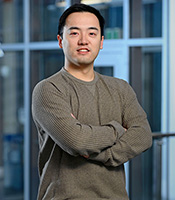 Zihao Sheng, Economics PhD
Zihao Sheng, Economics PhD
Zihao Sheng is interested in how live-in immigrant caregivers can help improve the productivity of Canadian women, and benefit both the immigrant families and the Canadian economy.
“Immigrants can benefit native-born workers and contribute to the Canadian economy through an unconventional channel.”

